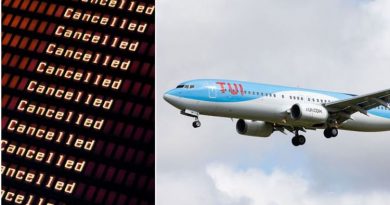The path from IC to host agency
Q: According to Travel Weekly’s Travel Industry Survey 2022, travel advisors overwhelmingly concentrate on selling cruises and all-inclusives. Many if not most of those advisors have host agencies that they rely on, primarily for higher commissions that the hosts negotiate and then share with the hosted ICs. Obviously, this structure depends on the hosts’ ability to negotiate better commission deals than an IC alone can. I am thinking of starting a host agency. Can you give me advice about getting high commissions for my hosted ICs?
A: If you are just starting out, then you face a chicken-and-egg problem. You will not have the sales volume you will need to obtain the best deals, but you will have a hard time attracting ICs if you don’t have those deals.
Fortunately, there is a way to overcome this problem: Start by becoming an IC of a large host agency and gradually recruit your own ICs that will be sub-ICs of your host. If you are successful, you will eventually have the volume to go out on your own.
The travel advisor industry seems to be full of these sub-hosting relationships. There are even sub-ICs that are themselves hosts of sub-sub-ICs. While all this sounds like a pyramid scheme, it is legal and apparently encouraged (or at least tolerated) by travel suppliers.
Once you decide to go out on your own, you will probably still need to depend on your host for at least a few years, so you need to have an agreement with the host that recognizes your ambition and smooths the way for a transition. You will eventually be competing with your host, so you want to avoid a precipitous decision by the host to terminate your relationship.
Your next step is to consider getting your own ARC, Iatan and CLIA numbers. Some hosts have ARC appointments that are branches of very large agencies, and if you already have such an appointment, you are probably better off keeping it, as it is very difficult to get airline commission and override deals on your own.
Armed with your industry accreditations and sub-IC volume, you can now obtain agreements with cruise lines and all-inclusive chains. Remarkably, even though most cruise lines are owned by one of three companies — Carnival, Royal Caribbean and Norwegian — each individual line has its own standard contract and agency sales team, so you need to decide which ones will be your preferred suppliers and then concentrate on them.
All these standard contracts have legal and business terms that favor the suppliers and not the agency, so your job is to roll back the unfavorable terms to the extent you can. For example, most such agreements provide that the supplier can designate any portion of the price as noncommissionable at any time, so you would at least try to specify that such designation would not apply to bookings already made.
The bigger you grow, the more likely you will be successful in contracting with preferred suppliers.
Source: Read Full Article



